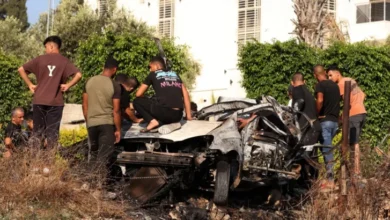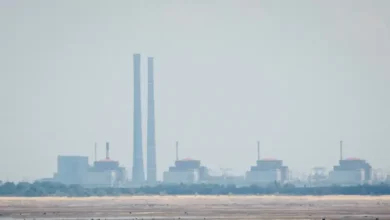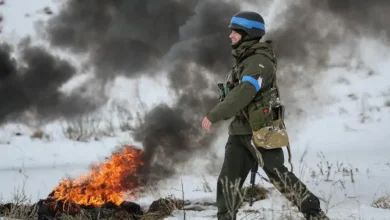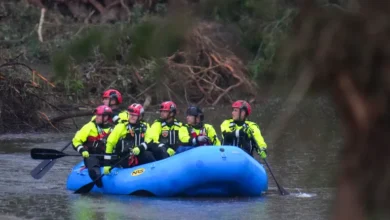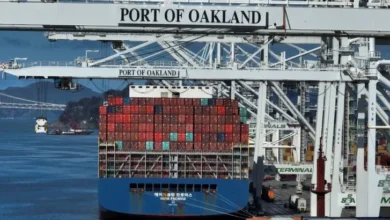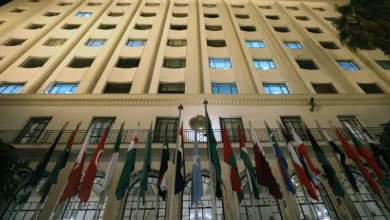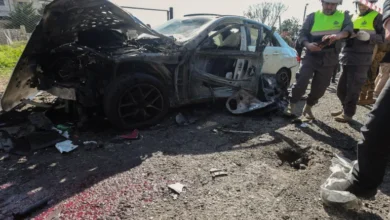What is ‘The Hague Invasion Act’ and is the US planning to use it?

The International Criminal Court’s (ICC) Chief Prosecutor Karim Khan on May 20 applied for arrest warrants against Israeli Prime Minister Benjamin Netanyahu, his Defense Minister Yoav Gallant, and three members of the Hamas leadership for alleged war crimes in Gaza.
Khan said in a statement he was seeking warrants against Netanyahu and Gallant for crimes, including “willful killing,” “extermination and/or murder,” and “starvation.”
He further said Israel had committed “crimes against humanity” during the war, started by Hamas’s unprecedented October 7, 2023, assault, as part “of a widespread and systematic attack against the Palestinian civilian population.”
US President Joe Biden was quick to slam the move as “outrageous,” while US Secretary of State Antony Blinken suggested he would work to sanction the ICC judges and officials.
A dozen US Senators also wrote a letter to Khan, citing a two decades-old law, the American Service-Members’ Protection Act (ASPA), saying: “Target Israel, and we will target you.”
‘The Hague Invasion Act’
ASPA, informally known as ‘The Hague Invasion Act,’ was signed into law in 2002 by the then US President George W. Bush, giving a sitting US President powers to free members of the US military and “covered allied persons” held by the court in The Hague by force.
It authorizes the US President to use “all means necessary and appropriate to bring about the release of any US or allied personnel being detained or imprisoned by, on behalf of, or at the request of the International Criminal Court.”
The term “covered allied persons” covers elected officials of a NATO member country, which includes Israel, according to the law.
Will the US invoke ASPA if Netanyahu is arrested?
The White House has so far refrained from commenting on whether the Biden administration will invoke the extraordinary measures of ‘The Hague Invasion Act’ if Netanyahu is arrested.
However, such a move is unlikely under the Biden administration, according to Senior Policy Fellow at the European Council on Foreign Relations, Anthony Dworkin, who told Al Arabiya English that a Donld Trump-led future US administration is more likely to do it.
“The current policy of the US administration is to deny the legitimacy of the Court’s action rather than take direct action against it,” Dworkin said.
“That could of course change – and probably would change – if Trump is elected in November,” he added.
A total of 124 countries are signatories to the ICC statute, which includes all the EU member-states as well as the UK and are required to arrest fugitives wanted by the ICC.
Israel is not a member of the ICC and rejects its jurisdiction, but Khan says his office has jurisdiction over the events since October 7 in Israel and the Gaza Strip.
The Biden administration, in a statement last week, said it “strongly opposes” the ICC sanctions bill in the House and condemns the “heedless rush” to apply for arrest warrants against senior Israeli officials.
The Republican-led US House of Representatives has passed the legislation with 247 votes to 155, imposing sanctions on the court in The Hague.
The measure is not expected to become a law but reflects continuing support for Israel in Congress amid international criticism.
Can ICC deliver justice if not peace?
The ICC has no police force of its own. It depends on the member states who are signatories to carry out the actions it intends to do against international offenders.
The move by the ICC has sparked outrage from allies of Israel, particularly from Italy and the UK that the warrants undermine the ongoing negotiations.
But according to Dworkin, the application for arrest warrants against Israeli leaders by Khan is unlikely to affect the peace negotiations between Israel and Hamas.
“I don’t see any direct impact but it’s likely that the application is one of a number of factors that are contributing to a feeling of increasing international isolation in Israel,” Dworkin said.
“This increases the pressure for Israel to at least appear to be negotiating in good faith,” he added.
Seeking arrest warrants is not a sign of success, and the prospects of Netanyahu and Gallant, as well as the Hamas leaders, standing trial in The Hague are very low, according to Dworkin.
“However, that does not undermine the expressive force of having the ICC issue a warrant, which involves a finding that there are reasonable grounds to believe that the named individuals committed serious international crimes,” he said.
“I also believe that the prospect of warrants will contribute to the marginalization of Netanyahu in Israeli politics and increase the sense of international isolation of the country, which could help the cause of peace,” he added.

